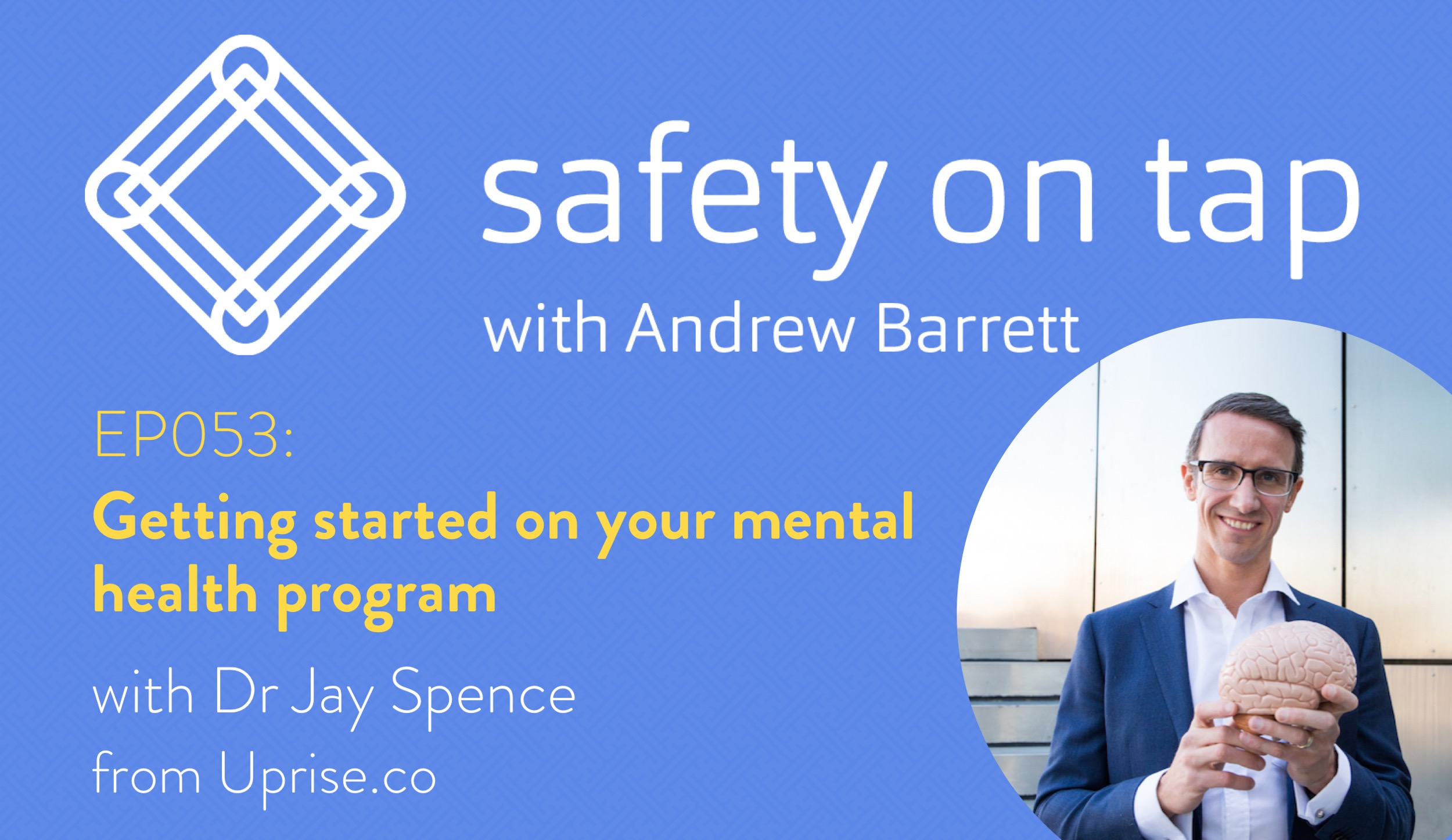Today I’m joined by Dr Jay Spence, the CEO of mental wellness startup Uprise.
This episode is brought to you thanks to Safety on tap Connected, the world’s first professional growth accelerator for health and safety professionals. Membership of SoTC not only gives you a community of peers to learn from and with, plus short courses which will help you boost your effectiveness – but probably most valuable is you get me as your personal development coach. Just this week I was coaching someone through an application they were writing, helping a different person reveal some of their deeper self-doubts which were holding them back from their full potential, and constructively challenging another member to take more action, to step out of the comfort zone of just consuming new knowledge.
Smart professionals use smart ways to learn and improve their performance. SoTC helps you do that for the price of only 3 coffee’s a week. Find out more and hop on the waiting list at safetyontap.com/connected
Jay Spence has something in common with me. We’ve both seen a need to help people solve a problem, with a solution that is almost entirely new – we haven’t just tweaked some idea or solution that is already out there. I’ve done that with Safety on Tap Connected, which is a new way to support you to develop. Jay lives and breathes mental health – and he saw problems with the current approaches to how organisations address this – in particular being mostly reactive with things like EAP services. So Jay founded Uprise – a company which brings to life the best research on proactive interventions to improve mental health in workplaces using simple, evidence based, scalable digital and traditional support.
Here’s Jay:
I’ll also send you the links to all the available back-catalogue of reflection templates so you can access these at any time.
Here’s my two takeaways from that chat with Jay Spence:
- Didn’t Jay ask us a great question! Are you treating mental health the same way as physical health? We all recognise the need to reduce stigma associated with mental illness, and yet our attitudes, thoughts and language still need some work. You wouldn’t treat someone with a broken arm with pity, so try and be conscious not to do it if someone is having mental health challenges. You don’t need to be a counsellor, you don’t need to fix anything – be human, be compassionate.
- Take action. This episode was designed to be a bit more practical – so if you haven’t already, get started. Check out the Heads Up website for great resources and plans to help. Read the University of Tasmania White Paper that Jay mentioned, it has a great easy to read outline of the three key strategies to Prevent Harm, Promote the Positive, and Manage Mental Illness. If you want a more DIY approach, Jay has shared the WHO-5 questionnaire which you can start to use. And if you want more of a done-with-you approach, speak to Jay and the team at Uprise. I’ll link to all of these resources in the show notes. You are ready so let’s go!
Jay has prepared some great info to help get you started:
Instructions on scoring the WHO5
Jay mentioned quite a few additional resources for you to check out:

